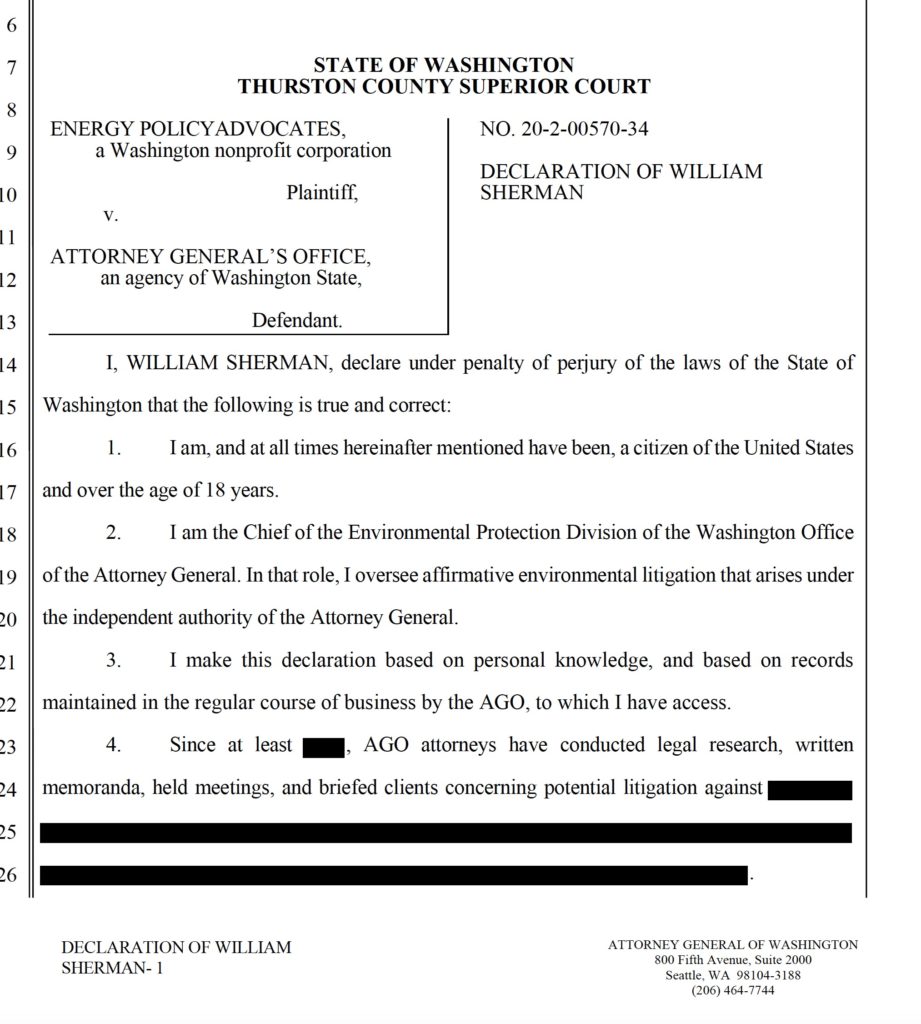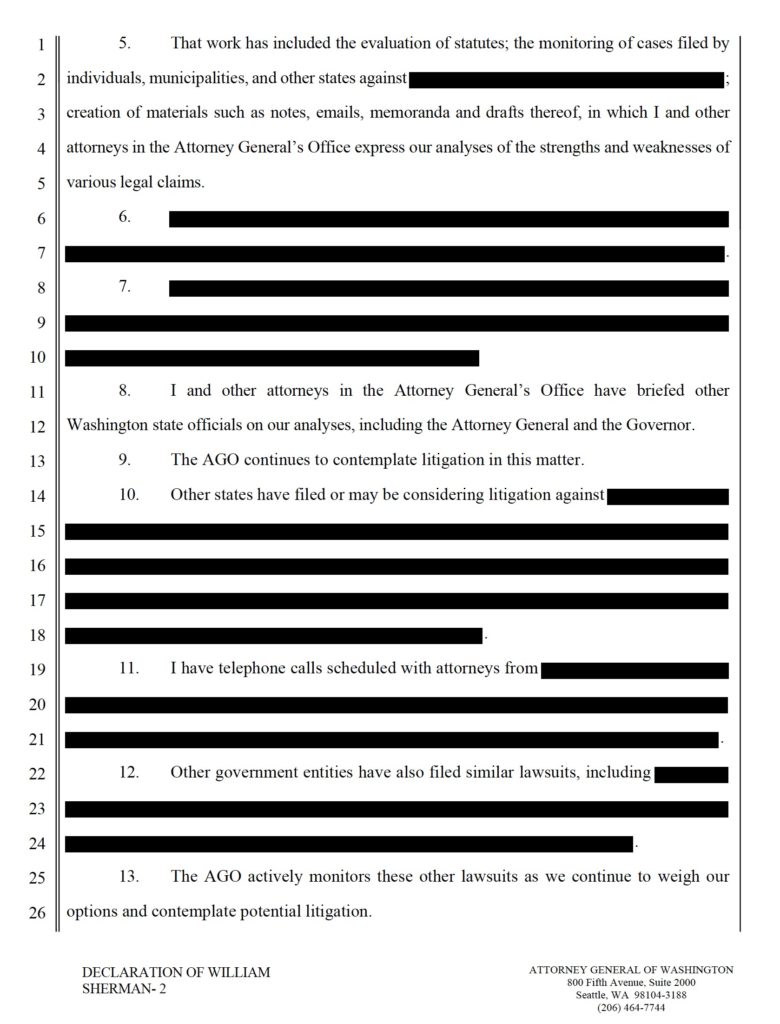In an unusual move, well after merits arguments concluded the Washington State Attorney General’s Office has asked the Thurston County Superior Court to allow it to file a sealed affidavit by the Chief of its Environmental Protection Division, William Sherman, explaining why four- and five-year-old memos about possibly joining the New York AG’s Office in suing ExxonMobil should remain sealed.
This comes in an open records case brought by Energy Policy Advocates (EPA). These memos are at issue because, interestingly, they were responsive to a request for documents mentioning “climate nuisance” tort lawyer Matt Pawa. WA AGO redacted all three memos in substantive full — including even whatever they were saying about this lawyer who, the public record on CLW and elsewhere is clear, was recruiting AGs to go after the target(s) of his civil litigation.
In its motion AGO writes, “The information [in Sherman’s redacted affidavit] includes how long the AGO has been interested in such litigation, the steps the AGO has taken and is taking regarding pursuing such litigation, and the ongoing nature of the potential litigation.”
The affidavit, in redacted part, reads:


EPA has opposed this as extraordinary, supported nowhere in the applicable rules, and the opposite of what the facts warrant.
After withholding information improperly, and declining to bother earlier with details as to why these records might actually be privileged (rather than offer conclusions that, well, they are), the AG wants to withhold from the public what it was up to with the tort bar. It instead wants to secretly tell the judge in an effort to keep those older records from public scrutiny.
EPA also sued AGO for withholding numerous Spring 2016 emails mentioning Pawa and/or the infamous 2016 press conference with Al Gore. Discussions included why Washington did not follow New York: their reason, set forth in the emails — obtained from another agency, because they’re not privileged — was that the AGs could not actually establish “Attribution”, the machinations surrounding which are ripe for investigative journalism.
AGO’s motion comes after turning over unredacted records for in camera review upon order of the Court, following that June 19, 2020 merits hearing. WA AGO notes in its filing that this is an unusual grant in that Court; EPA now points out that the rules do not provide for in camera review of an affidavit trying to put a new gloss on such records let alone in order to get a second, ex parte bite at the argument.
EPA argues that the Court should instead require the AG to produce this affidavit — which the rules also do not permit it to withdraw. This would avoid yet more improper secrecy about how this public office came to be engaged in an investigation, one that just happened to be pressed for by a tort lawyer who, it also just happens, OAG pointed to in its memo(s) at the time.
